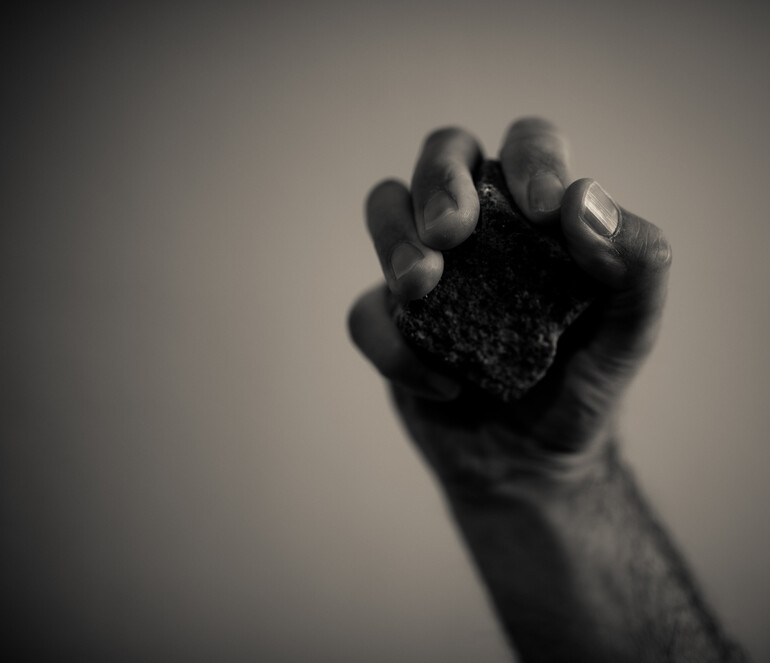The grizzly history of stone-throwing is usually thought of as a topic not worth much for deeper study. When we think of the woman caught in adultery story, those willing to stone her are revealed as being great sinners. So, we might conclude with something like, “don’t judge, because you also are a sinner!” But we forget sometimes that these men were following Mosaic law.
What was the original purpose of stone-throwing. Why did God choose this practice for executing those guilty of great sin in ancient Israel?
Let’s start with plain honesty. There are precious few ways of public execution more horrific for both the one doing the throwing and the one targeted. It was brutal and it was dramatic. Anyone seeing such an event would forever remember it. I once saw a video where such an execution was taking place today in the middle east. I thought surely it was a reenactment, but shortly after it began I had to switch it off.
So, why did the Lord institute this method for His people? I believe it was for two reasons: first, precisely because it WAS horrific, which might encourage those present to make sure conditions would never arise again where such a thing had to happen. In other words, as a preventive measure where a community could guard against the great sins that could require such punishment. But there’s a second reason that I would like to elaborate on — one which is not easily seen.
God’s ultimate method of forever eradicating selfishness and sin from His perfect universe is to let it run its natural course. We know this. Satan is allowed to let his rebellion do what it would naturally do … to kill the Creator and all He stood for.
But there is something still deeper to this. God wants us to know His heart. He wants those close to Him to understand the pain this world has caused Him. As we understand that pain more, we will harden our resolve against sin and the harm it produces. This is why He shared with His friend Abraham the pain of delivering up a son. The offering of living, defenseless animals as man’s substitute was meant to be distasteful. “Without the shedding of blood ... ”.
God has used the throwing of stones in many of His judgment scenarios in the Scriptures. Sodom and Gomorrah are prime examples. There are plagues in Egypt and in the latter days (Revelation) where these judgments are part of the story. But the biggest judgment against the violence in the world came in Genesis.
There is mounting physical evidence in the geology of earth’s past that this planet has been struck repeatedly by meteors. A popular theory growing recent support suggests they were responsible for the extinction of dinosaurs. It is entirely possible that the flood of Genesis began with a series of meteor strikes. This could result in a break-up of the earth’s crust, the pressurizing of subterranean water reservoirs and maybe even the tipping of the earth off of its vertical axis, resulting in annual seasons as we have today.
Making this practical, I think it's important to remember our role. Jesus spoke directly about throwing stones. In John 8:7 we read, “He who is without sin among you, let him throw a stone at her first” (NKJV). You and I are not authorizied, as sinners, to judge. However, that also means that God and that Christ are qualified to do so. When God acts in judgment, it is not performed in anger. Rather, God acts through tears. Destruction is a strange act for our God of love.
In Noah's story, as God held stones for the earth, when only one righteous and endangered family remained, He couldn’t wait any longer. If Noah had died, the line that would produce the world’s Savior would have been erased.
Perhaps God wanted His friends to feel this pain. Because when you hold a stone that would take the life of your neighbor, someone born for a high purpose but deep in the satanic clutches of terminal sin, you, too, might wail, “how can I give you up?”









